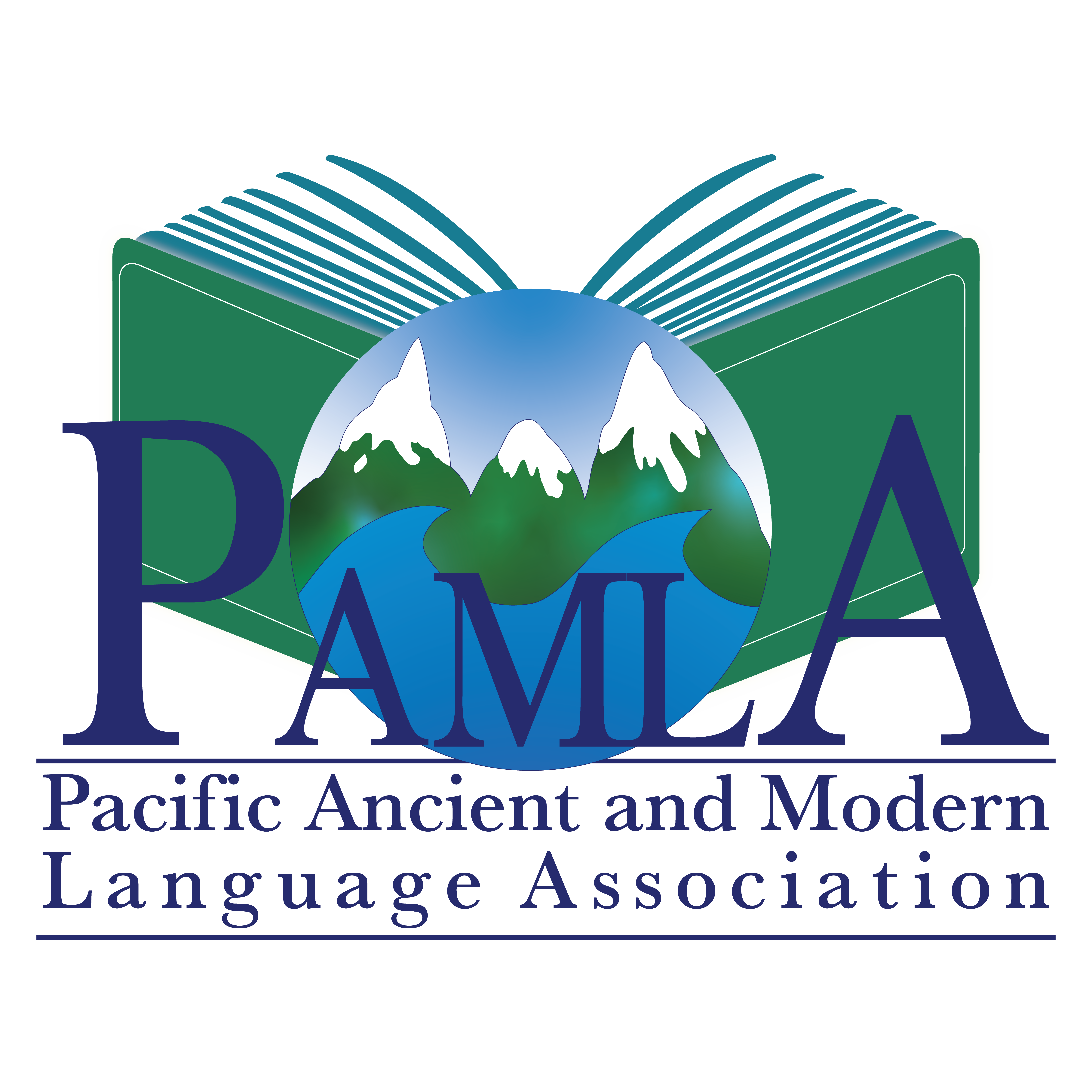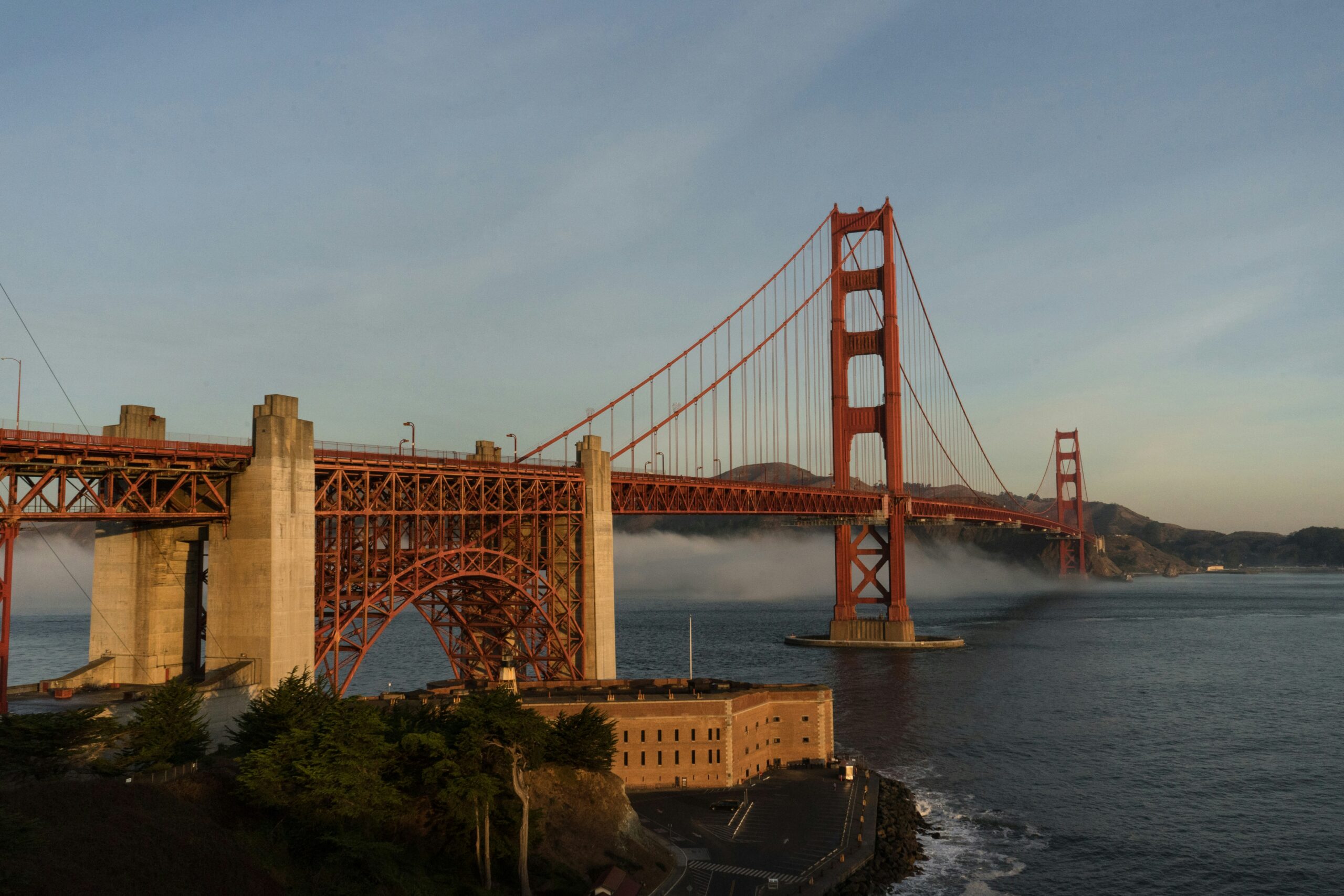PAMLA 2025 San Francisco: “Palimpsests: Memory and Oblivion”
The 122nd annual PAMLA Conference will be held between November 20-23, 2025 at the InterContinental San Francisco in San Francisco, California.
PAMLA welcomes special session proposals (both on and off theme) for the 2025 PAMLA conference in San Francisco, California on topics of scholarly interest that are not too close to the topics of our general (standing) sessions (see below to find a list of PAMLA’s general/standing sessions).
You may still submit a proposal for a special session: https://pamla.ballastacademic.com/
Special session and paper submissions are not limited to the theme of this year’s conference, “Palimpsests: Memory and Oblivion.” But if you’d like to touch on the theme that would be most welcome.
While we welcome special sessions on a wide range of topics, we are particularly interested in special session proposals that engage with the 2025 PAMLA Conference theme.
Our theme will be “Palimpsests: Memory and Oblivion.” PAMLA welcomes special session proposals on a wide array of creative, scholarly, literary, filmic, or cultural topics. Palimpsest-focused submissions related to thematics of remembering, forgetting, erasure, and lingering presences from the past are particularly welcome. However, we also encourage proposals that lie beyond this focus (please review our standing session topics so as to avoid undue overlap with our standing session topics: https://www.pamla.org/about/constitution-bylaws/).
The 2025 special session proposal deadline is April 15 (but please try to propose your special session sooner, if possible). To submit a session proposal, log into pamla.ballastacademic.com (you will need to create an account there if you’ve never done so before), click on the Propose Session button, and follow the directions from there.
A palimpsest is a manuscript whose inscriptions have been scraped away and replaced with new writing; but vestiges of the old characters remain, creating a layered or stratified effect. The palimpsest form has inspired many disciplines and disciplinary gestures beyond paleography, with the term, concept, or metaphor “palimpsest” being used to indicate the traces, specters, echoes, or presences of the past that remain even as many past narrative elements, structures, or tropes are forgotten or erased. To note an example from far afield—in the world of planetary astronomy, the term palimpsest refers to a “ghost crater” or impact site of a meteor that has been partially obscured or deformed over time. This example suggests how spectrality attends the palimpsest trope; traces of the early inscriptions continue to “haunt” successive iterations.
Beginning with the Ohlone, Coast Miwoks, and other Indigenous forebearers whose continuing inscriptions onto the cultural and natural landscapes of the region comprise the area’s foundational Ur-texts, San Francisco has undergone countless dramatic cultural transformations and (re)inscriptions. It is only fitting to theorize a variety of literary, artistic, cultural, filmic, and intellectual palimpsests while in San Francisco, with its rich history of migration, immigration, colonization, contact zones, war, peace, gold rushes, earthquakes, gentrifications, Indigenous, Black, Gay, Queer, and other civil rights movements, closures, crime waves, and urban renewals and re-renewals. All these waves have occurred while San Francisco has also retained a sense of nostalgia and romance as projected onto beloved films, poetry, fiction, non-fiction, art, and architecture. San Francisco is thus the ideal place to explore multivalence—and the palimpsest trope supplies a perfect vehicle for contemplating urban spaces and cultural heritages, third spaces and fourth walls, oblivion and re-imaginations
The interplay between foreground and background, past and present, remembered and (partially) forgotten, offers many prospects for this palimpsestuous theme, as might be found in topics such as:
- Multivalent cityscapes and memory
- Visions of the metropolis (for example– postmodernism and the city or lost cities in geography, film, and literature)
- Streets, Neighborhoods, and Forgotten Spaces: Graffiti, street and mural art, underground art, prison and protest art; Jane Jacobs’ visions of neighborhoods; the Tenderloin, North Beach, the Castro, Haight-Ashbury
- Public transportation and human connectivity
- Flâneurs and modern flânerie
- Cataclysms, scarification, and healing
- Memory, forgetting, memorialization, misprision, misreading, and revision
- Censorship and attempts at erasing, hiding, revising, contesting, forgetting, and reviving texts and narratives of the past
- The university and the profession: erasing and remembering the histories of our professions and institutions, and attempts to change, erode, erase, or remake the liberal arts
- Indigenous and aboriginal voices, narratives, and narrative retellings
- Mary Louise Pratt’s concept of “contact zones” and colonial and post-colonial texts of contact, cultural hybridity, cultural appropriation, and anti-colonial narrative responses
- Musical and Digital aesthetic play, including adaptation, adoption, sampling, collage, improvisation, audience involvement, and interplay
- Speculative history, speculative fiction, and aesthetic anachronism
- Neo-slave narratives, like Kindred or The Underground Railroad
- Postmodern, transtextual or intertextual works, like Wide Sargasso Sea, Wicked, Midnight’s Children, Blazing Saddles, Reservation Dogs, Dickinson, and Transformations
- Historical narratives and appropriations of memory (for example– museums, memorials, cemeteries, parks and publics spaces, theme-parks, and other sites of memory and cultural, historical revision or contestation)
- Fragmentation and reconstruction; Inventions and reinventions
- Enigmas and traces in detective fiction and beyond
- Mentors and Disciples in writing and art
- Native American lives and depictions in San Francisco and beyond
- Gay revolutions and queer histories in San Francisco and beyond
- Asian American Histories in San Francisco and beyond
- African American Histories in the Bay Area and beyond
- Latinx Histories in the Bay Area and beyond
- San Francisco Beat, Hippie, Iconoclast, and Subaltern Memories and Histories
- Palimpsests of horror and the Gothic: Monsters, vampires, and revenants
- Fluidity, performativity, and protean concepts of the “self” or “I
- Communities, sites, and cults of nostalgia
- Narratives of Time, Loss, Transformation, and Haunting: Family histories, ghost stories, time travel, robotics, transhumanism, and posthumanism
- Appearance and Disappearance; Magic and Reality
- Medieval glosses, Umberto Eco’s The Name of the Rose
- Julia Kristeva and Gerard Genette’s theories of palimpsests and intertextuality
- Experimental Poetry, replacement, erasure, and bricolage
- Paleography and textual criticism: questions of literary revisions, variations & manuscripts
- Shifting literary histories
- Adaptation, pastiche, and literary, artistic, media form
*PAMLA encourages special session proposals with alternative formats, such as roundtables, workshops, creative conversations, etc.; PAMLA encourages session proposals that will welcome paper proposals from a wide variety of scholars, not just scholars from the presiding officer’s host institution.
*PAMLA hosts the following General/Standing Sessions (So please make sure that your special session proposal does not merely replicate the topic of one of these existing General/Standing Sessions):
21st-Century Literature; Adaptation Studies; African American Literature; American Literature before 1865; American Literature 1865-1945; American Literature after 1945; Ancient-Modern Relations; Anime and Manga; Architecture and Space; Asian American Literature; Asian Film and Media; Asian Literature; Austrian Studies; Autobiography; Beyond Binaries; Bible and Literature; British Literature and Culture: To 1700; British Literature and Culture: Long Eighteenth Century; British Literature and Culture: Long Nineteenth Century; British Literature and Culture: 20th and 21st Century; Canadian Literature and Culture; Children’s Literature; Classics (Greek); Classics (Latin); Comics and Graphic Narratives; Comparative American Ethnic Literature; Comparative Literature; Comparative Media; Composition and Rhetoric; Creative Writing: Brief Prose; Creative Writing: Poetry; Crime and Mystery; Critical Theory; Cultural History; Digital Humanities & Creative Praxis; Digital Studies; Disability Studies; Disney Culture; Drama and Society; East-West Literary Relations; Family and Metafamily; Fantasy and the Fantastic; Feminisms; Film and Literature; Film Studies; Folklore and Mythology; Food Representation in the Spanish-Speaking World; Food Studies; French; Gay, Lesbian and Transgender Literature; Germanic Studies; Gothic; Hip Hop Aesthetics and Spoken Word Poetics; Horror and the Supernatural; Indigenous Literatures and Cultures; Italian; Italian Cinema; Italian Ecocriticism; Jewish Literature and Culture; Language, Culture, and Linguistics; Latin American Cinema; Latina/o Literature and Culture; Literature & the Other Arts; Literature and Religion; Medieval Literature; Middle English Literature, including Chaucer; New Italians; Oceanic Literatures and Cultures; Old English Literature, including Beowulf; Poetry and Poetics; Postcolonial Literature; Prison Studies; Religion in American Literature; Rhetorical Approaches to Literature; Rhetorical Theory; Romanticism; Science Fiction; Shakespeare and the Early Moderns; Spain, Portugal, and Latin America: Jewish Culture & Literature in Trans-Iberia; Spanish and Portuguese (Latin American); Spanish and Portuguese (Peninsular); Teaching with Media and Technology; Teaching Writing Across the Disciplines; Television Studies; Travel and Literature; Un camino difícil/A difficult Journey: Cultural Products about “(Il)legal” (Im)migration; Veterans Studies; Video Game Studies; Women in Literature; Young Adult Literature and Culture.
Other Special Session Topics
As always, we welcome special session proposals (due April 15, 2025 via our online special session proposal system: pamla.ballastacademic.com) on the preceding topics related to our conference theme, but also on other topics of broad interest (in other words, special session proposals will be entertained that do not connect to the conference theme, as well as proposals that do). This year, we are particularly interested in special session proposals broad enough to perhaps justify becoming general (standing) sessions after three successful years as special sessions.
For example, PAMLA’s board would welcome special session proposals on topics such as:
- Multilingual American Literature (in other languages than English, or in English and other languages, both)
- Arabic Literature and Culture
- ASL
- Audiences or Reader Response Theory
- Audio (or Sound) Studies
- Banned, Burned, or Censored: A Roundtable About Free Speech and Books
- Books: perhaps including Textual Studies, Materiality, History of the Book, etc.
- Chinese Literature, Film, and Culture
- Class or Marxist Literature, Film, and Culture
- Creative Writing: Drama or Creative Writing: Creative Nonfiction or other topics of interest
- Fan Fiction or Fan Studies
- Futurisms (to include Afrofuturism, Indigenous Futurism, etc.) Or Multi-Ethnic Futurisms
- Hmong
- Immigrant Studies (Or Movement, Migration, and Immigration)
- Infrastructure Studies
- Interdisciplinary or Innovative sessions
- Korean Literature, Film, and Culture
- Teaching of Literary Works (focusing on a particular work)
- Modernism
- Multi-ethnic German
- Museum Studies
- Objects, Stuff, and Things; Object Studies
- Pedagogy
- Performance Studies
- Portuguese
- Posthuman or Animal Studies
- Posthumanities
- The Postmodern
- Slang, Languages, and Dialects (or Underground Languages)
- Sociolinguistics
- Scottish Literature, Culture, and/or Studies
- Spatial Studies
- Transcultural (or Transnational) Literature
- Translation Studies
- Vietnamese
If you have any questions, please contact PAMLA Executive Director Craig Svonkin (director@pamla.org) or PAMLA Vice President John Schwetmann (jschwetm@d.umn.edu).

